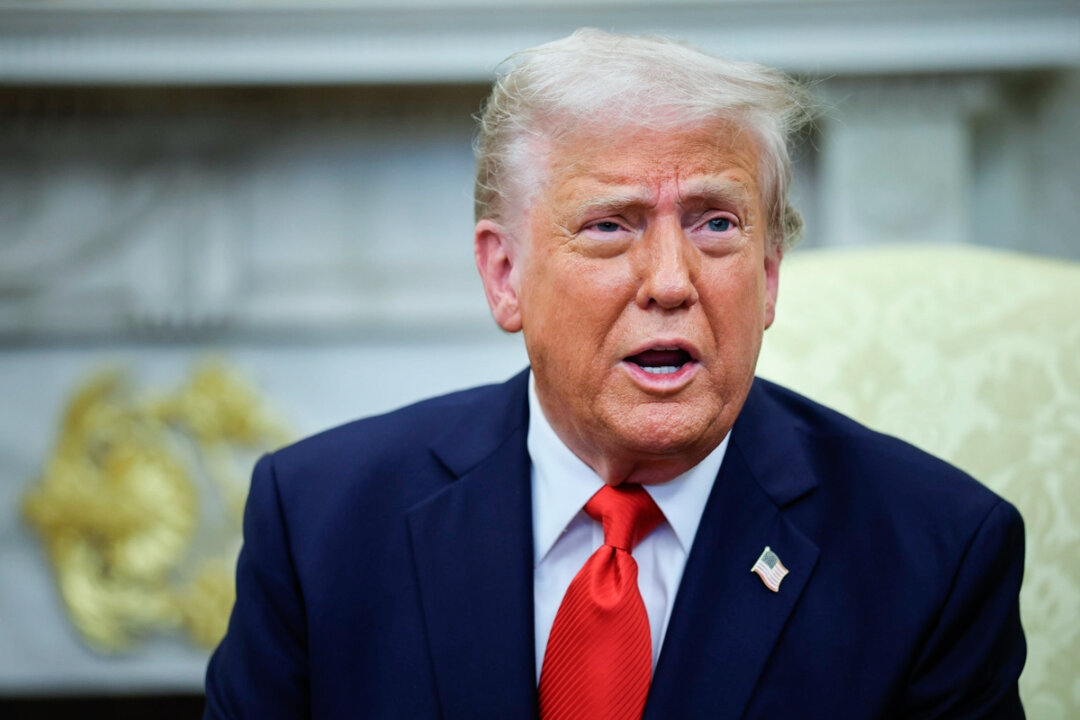The agreement would grant Washington revenues from Kyiv’s exploitation of rare minerals, hydrocarbons, oil, and natural gas.
The United States and Ukraine are aiming to sign a key rare earth mineral agreement next week.
The agreement would grant Washington revenues from Kyiv’s exploitation of rare minerals, hydrocarbons, oil, and natural gas in exchange for continued security assistance.
Speaking to reporters at the White House, President Donald Trump said that Washington and Kyiv would likely finalize the deal next week, provided Kyiv remained committed to it.
“We have a minerals deal which I guess is going to be signed on Thursday, next Thursday, soon … I assume they’re going to live up to the deal, so we’ll see,” Trump said.
Trump has championed various iterations of such a deal as a means to recoup the money that the United States has spent in assisting Ukraine’s defense against the ongoing Russian invasion.
Ukrainian President Volodymyr Zelenskyy previously bristled at the initial suggested terms of the deal, which he said provided no security guarantees to Ukraine to prevent future aggression by Russia.
The United States has provided about $120 billion worth of direct aid to Ukraine since Russia’s full-scale invasion in 2022, most of which came in the form of weapons transferred directly from the U.S. to Ukrainian stockpiles.
As such, Zelenskyy has been reluctant to sign away what wealth Ukraine does have without promises of some form of safety after more than a decade of war against Russia and Russian-backed separatists.
Nevertheless, Zelenskyy has come to agree to Trump’s plan for a cease-fire and has expressed commitment to the rare earths deal following the Trump administration’s brief pause on all assistance to Ukraine earlier this year.
When pressed for details about the mineral deal, Trump deferred to Treasury Secretary Scott Bessent, who said that a deal largely resembling the first iteration would likely be signed sometime late next week.
“We’re still working on the details,” Bessent said. “We’re shooting for around April 26th.”
“It’s substantially what we’d agreed on previously when the president [Zelenskyy] was here… I think it’s an 80-page deal and that’s what will be signed.”
Trump previously suggested that Ukraine would give the United States $500 billion worth of its rare earths and critical mineral deposits, but firm details remain nebulous. The most recent iteration of the deal made public would not seek to recoup previous U.S. assistance and would instead create a joint U.S.-Ukrainian reconstruction fund that would feed profits to the United States from Ukrainian mineral development.
Ukraine holds Europe’s largest reserves of titanium, uranium, and other rare minerals, but much of that wealth is currently located in Russian-occupied territory. Nevertheless, what Kyiv can offer could provide the United States with a much-needed means of diversifying its supply chains, which are heavily reliant on communist China for rare earths.
Bessent previously said that proceeds from Ukraine’s natural resources would be reinvested into key sectors that would drive economic expansion and ensure that countries that did not support Ukraine’s defense would not profit from its reconstruction.
Zelenskyy said in a televised statement on Thursday that talks on the deal had made “good progress” and that an economic partnership would benefit both countries.
He also underscored that Kyiv had accepted Washington’s call for an unconditional cease-fire.
“Ukraine immediately accepted this offer more than a month ago. Russia has ignored it so far and… this is the key problem,” he said.
To that end, Trump’s attempts to corral Kyiv and Moscow into a temporary cease-fire remain in limbo.
Putin hasn’t agreed to a cease-fire and has increased Russian attacks against Ukraine in an apparent attempt to expand Russia’s battlefield gains before committing to negotiation.
An initial partial cease-fire deal, which leadership from both Ukraine and Russia agreed to last month, sought to halt attacks on civilian energy infrastructure for 30 days.
That deal was almost immediately breached, with officials in each country accusing the other of violating the truce by sabotaging an oil facility in a part of Russia occupied by Ukrainian troops.
Putin, meanwhile, has said that an end to the war would require Ukraine to cede four eastern provinces to Russia, abandon its quest for NATO membership, and be forbidden from hosting foreign troops on its soil for any reason.
Trump reiterated on Thursday that he hoped to see a cease-fire deal take shape soon despite the setbacks.
“We want the death and the killing to stop,” Trump said.

